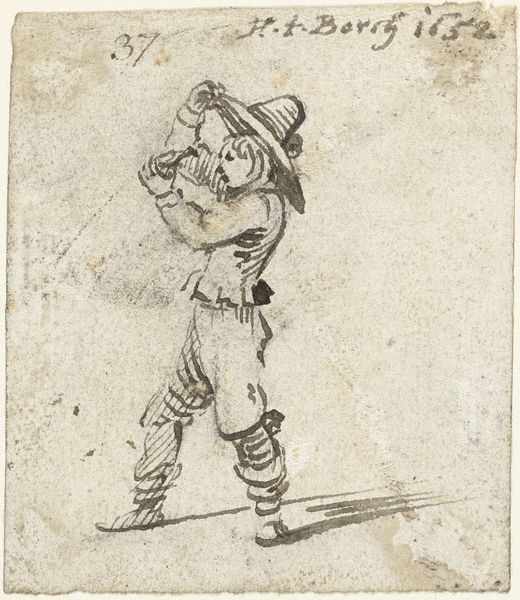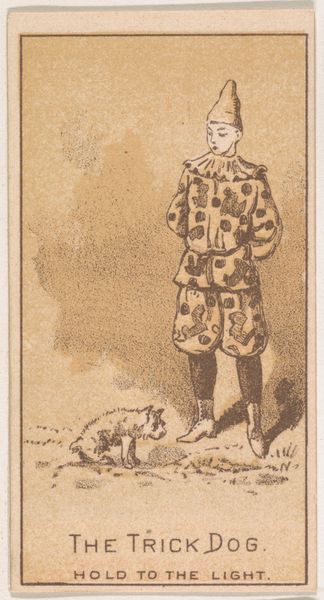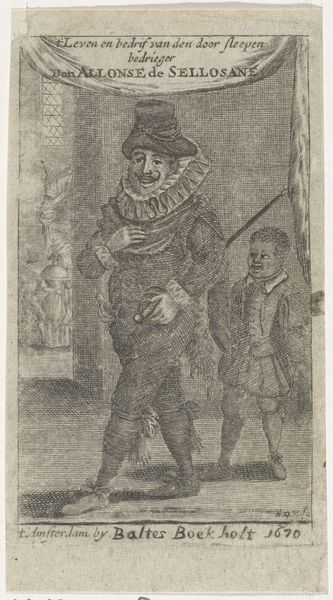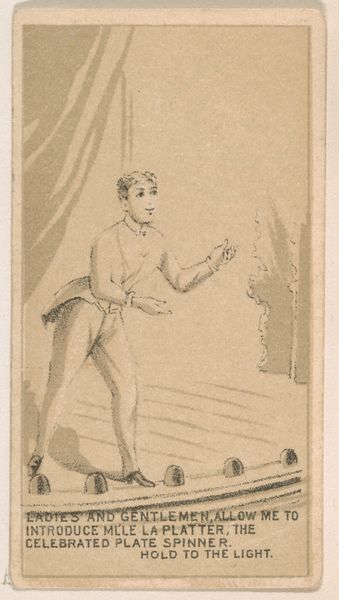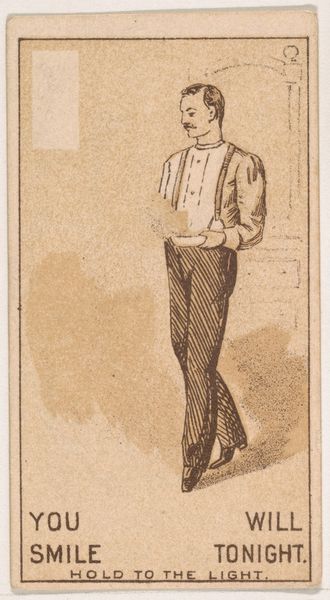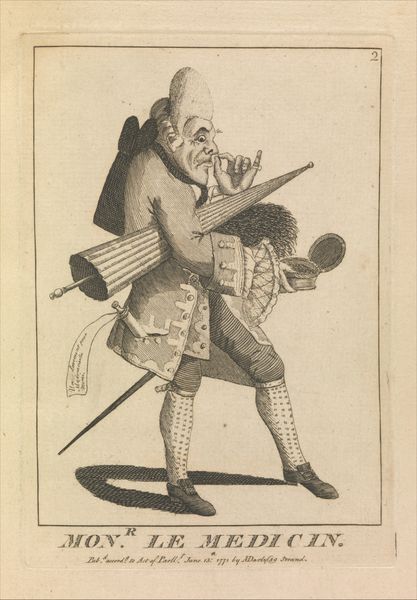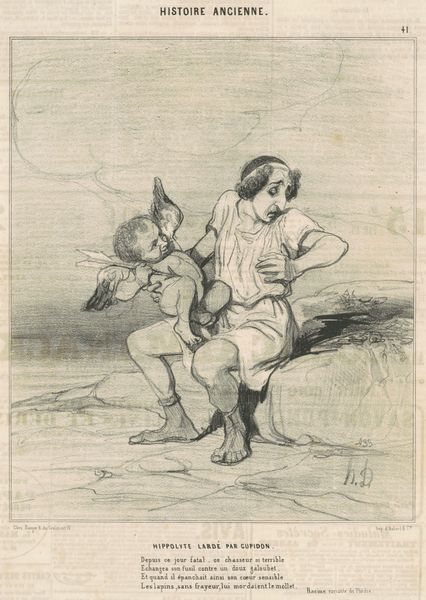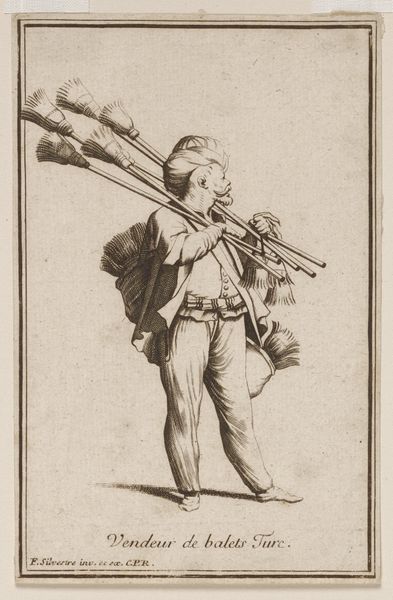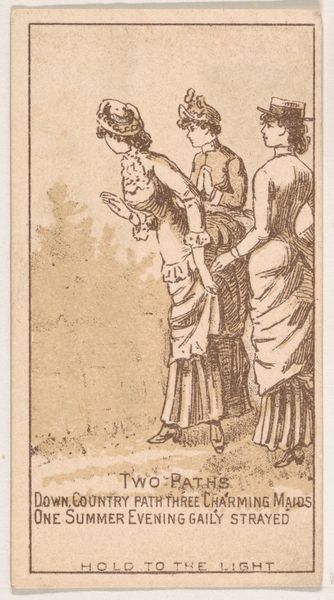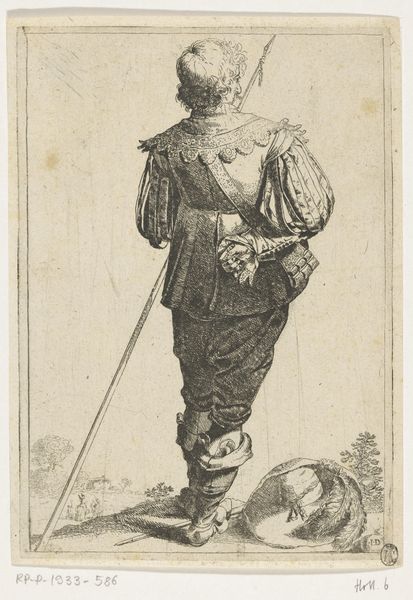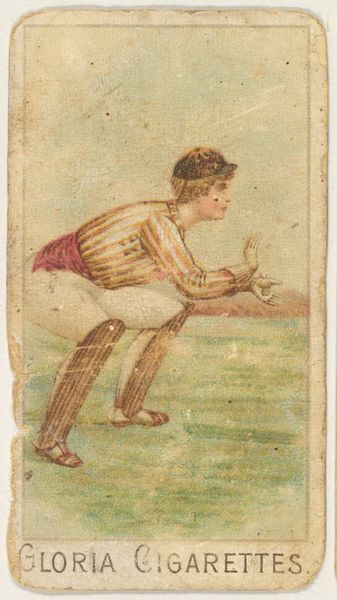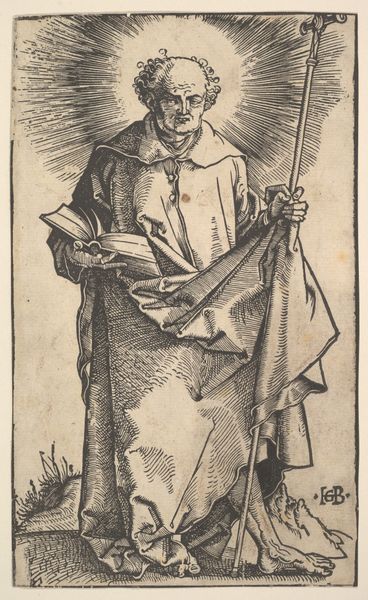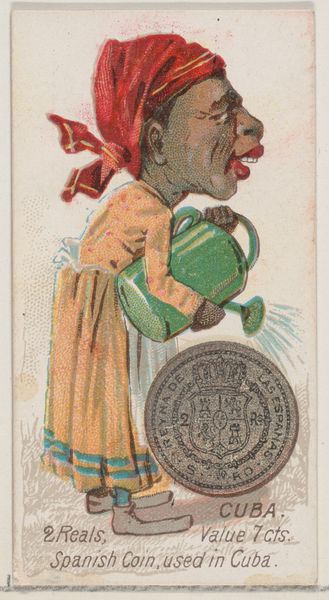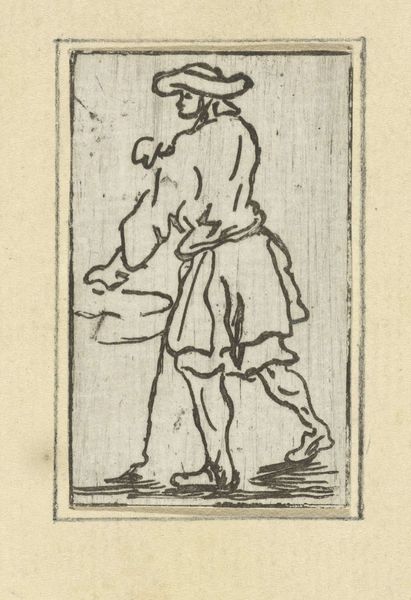
They Called This..., from the Magic Changing Cards series (N223) issued by Kinney Tobacco Company 1889
0:00
0:00
drawing, print, photography
#
drawing
# print
#
figuration
#
photography
#
men
#
genre-painting
Dimensions: Sheet: 2 3/4 × 1 1/2 in. (7 × 3.8 cm)
Copyright: Public Domain
Editor: Here we have a small print from 1889, "They Called This...Procrastination," part of the Magic Changing Cards series by the Kinney Tobacco Company. The scene depicts a boy running, while a man chases him. I’m struck by the blatant racism of the title, which really overshadows anything else. How can we even begin to interpret this? Curator: The title is indeed shocking to contemporary sensibilities, but it's vital to consider this within its historical context. These cards, distributed with tobacco products, were a form of popular culture in the late 19th century. How do you think they reflected, or perhaps even reinforced, social attitudes? Editor: I guess these cards, and similar objects, played a part in shaping the racist narratives and caricatures common at the time. It’s disheartening to realize the everyday nature of such depictions. The card normalizes these terrible tropes, doesn't it? Curator: Exactly. The card uses the stereotype to sell a product. The rhyme reinforces the notion of Black people being seen as “thieves of time”, a dangerous connection that permeates how society at that time saw certain communities, creating prejudice through institutions. Do you notice any other element that hints at this type of message? Editor: Well, now that you mention it, even the setting - the boy running away on the street - reinforces this stereotype. The man raising his hands behind him indicates danger. It also presents Black people through the oppressor's biased lenses. Curator: Precisely. And understanding this imagery within its historical distribution is crucial. It speaks to the pervasive nature of racism, deeply embedded in commercial culture. The casualness of the image and rhyme underscores its insidious impact. Editor: I hadn’t really considered how the format itself – a trading card – contributed to the problem. It’s a sobering reminder of how racism was normalized through everyday objects. It shows us that even ephemeral artworks can be politically charged and used for propagating historical misinformation. Curator: Exactly. It also urges us to be extremely mindful and responsible for the type of messages we allow to be disseminated today.
Comments
No comments
Be the first to comment and join the conversation on the ultimate creative platform.
